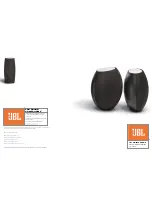
P
hoenix Gold • www.phoenixgold.com
TI365CSX
Ti3CS1TX
Owner’s Manual
TWEETER MOUNTING
SPECIFICATIONS
T/S Parameters:
Ti365CSX
Re (Dcr)
3.6
FS (Hz)
55
Sd (SqM)
.0135
BL TM
5.5
Qms
5.38
Qes
.607
Qts
.545
Vas (liters)
13.24
Cms (uM/N)
581.08
Mms (gms)
15.26
Specifications:
Ti365CSX
RMS Power Handling
150 watts
PEAK Power Handling
300 watts
Nominal Impedance
4 ohms
Tweeter HP Acoustical Crossover
3.5kHz @ 24dB (LnkRly)
Midrange LP Acoustical Crossover
2.95kHz @ 12dB (BTW)
*Midrange Driver Only
**Specifications subject to change
FEATURES:
• 25mm Silk Dome Tweeter
• Fully Machined Aluminum Tweeter Housing
• Dampened Polypropylene Cone
• Smooth Termination Dual Roll Rubber Surround
• Powder Coated Diecast Aluminum Basket
• Custom Tooled Crossover Housing with Direct Wiring Connections
• Audiophile Crossover with Tweeter and Midbass Adjustments
• Two Stage Light Bulb Tweeter Protection Circuitry
• Integrated Phase Plug
• Interwoven Tinsel Leads
• High Temperature CAE/CAD Motor Structure
Installation Instructions:
1. Find a proper mounting location that is flat and has a
mounting depth clearance of roughly 21mm.
2. Cut a 47mm mounting hole in the door panel or mounting
baffle.
3. Mount and secure the tweeter to the door panel or baffle
using the threaded retaining nut.
4. Connect the tweeter wires to the amplifier.
TWEETER WIRING NOTE:
BLACK = POSITIVE (+)
BLACK W/WHITE STRIPE = NEGATIVE (-)
(Mounting and Physical Dimensions are located on the back page)
Threaded Retaining Nut
Mounting Baffle Area
One Piece Aluminum Housing
Note on Fully Active Crossover Systems:
For the best performance
we always recommend the use of the provided passive crossovers
with an external high pass electronic crossover usually located on
the amplifier or headunit. The passive crossover design is extremely
complex as
it “blends” and “smoothes” the tweeter and midrange’s response
and impedances together.
Running the system fully active with an external electronic crossover
(instead of the passive crossovers) for the tweeter and midrange
eliminates all this smoothing and transitional circuitry. The reality is
that it almost guarantees worse performance unless the system is
perfectly EQ’d with precision crossover points. It also eliminates the
tweeter protection. Unless you are sound quality and tuning expert,
using the provided crossovers will deliver the best performance.






















